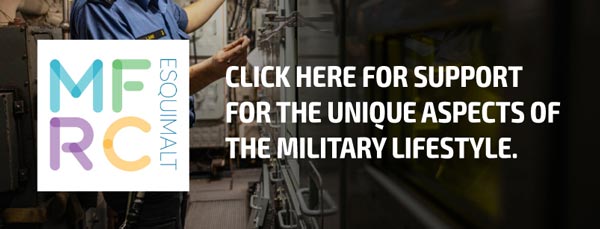Paul Dagones,
Lookout Staff
—
Every day people in British Columbia lose their lives to an overdose. National Addictions Awareness Week (NAAW), held annually during the third week of November, confronts this crisis by building awareness and promoting practical solutions.
Led by the Canadian Centre on Substance Use and Addiction (CCSA), NAAW workshops explore innovative approaches to reducing the harms of substance use. Each year, a unique theme shapes these efforts. For 2024, the theme was Forging Connections.
Locally, CFB Esquimalt and MARPAC hosted their third annual NAAW workshop, reflecting their growing commitment to tackling addiction through a comprehensive, evidence-based approach. These workshops aim to educate Canadian Armed Forces (CAF) members about addiction’s widespread challenges while promoting solutions rooted in empathy and science.
The 2024 lecture series, titled Addiction and Recovery Stigma: Tools and Methods for Supporting Addiction Recovery, focused on breaking down stereotypes and removing barriers to support.
“One of the themes for today is on the topic of stigma,” said Vicky Doucette, Health Promotions Specialist at CFB Esquimalt and Health Promotion Representative for MARPAC Health and Wellness Strategy Addictions Free Living Working Group. “We feel like there’s a lot of stereotyping that creates a barrier for working together to provide solutions and show support for addiction.”
Doucette highlighted the importance of inviting an expert with a strong foundation in the science of addiction and stigma. To meet this need, she invited Max Weselowski, a Social Sciences doctoral candidate at Royal Roads University specializing in addiction recovery and stigma reduction.
Doucette observed an increasing interest among CAF members for in-person connection, which shaped the workshop’s format. Weselowski’s lecture combined cutting-edge research with actionable strategies. He introduced tools such as screening questions developed by the Canadian Centre for Addiction and Mental Health (CAMH) to assess addiction involvement. He also explained the Stages of Change Model, which outlines the cyclical progress and setbacks often experienced during recovery, and emphasized Recovery Capital, a framework for fostering self-worth, building social connections, and improving physical health.
Weselowski underscored the societal impact of understanding addiction through evidence-based methods.
“The more we know, the less we are being emotional and irrational about our beliefs around addiction,” he said. “I think the benefit of this workshop provides simple steps for helping build someone up, rather than accidentally knocking them down in our efforts to support them.”
The workshop transitioned to a hands-on session led by Paige Aoki, Education Team Coordinator with AVI Health Community Services in Victoria. Drawing from her extensive experience in overdose response, Aoki stressed the life-saving potential of naloxone.
Each attendee received a naloxone test kit, and Aoki provided detailed instructions on its use.
“It’s a crucial skill that allows us to save lives,” she said. “Naloxone is very easy to use, very safe, and it’s the only way to support someone experiencing an overdose in a way that can save them.”
Aoki’s call for naloxone training reinforced the urgent need for society to challenge its biases about addiction.
“We are living in a time of crisis,” she said. “The toxic drug poisoning crisis is hugely impactful. We are losing people every day. I believe it’s now up to seven deaths per day in B.C. alone for overdose deaths.”
Workshops like these exemplify how communities can forge meaningful connections, dismantle harmful stigmas, and save lives. Doucette encourages anyone interested in organizing events or supporting addiction-free initiatives to contact her at vicky.doucette@forces.gc.ca.










